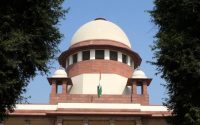$100 Website Offer
Get your personal website + domain for just $100.
Limited Time Offer!
Claim Your Website NowBio-medical waste a health hazard in Jharkhand
Source: hindustantimes.com
Roughly 60% Jharkhand’s bio-medical wastes generated from hospitals, nursing homes and clinics across the state go untreated in absence of proper disposal facilities, according to pollution officials and environmentalists.
The state has around 5,500 hospitals, nursing homes and clinics but only two common bio-medical waste incineration facilities are functioning, officials at the Jharkhand state pollution control board (JSPCB) officials claimed.
There are half a dozen incinerators in quite a few government and private hospitals but they use the facility for their individual purposes.
A recent survey claimed to have found that these hospitals produce around 4,700 tonnes of bio-medical waste annually but 59%, around 2,700 tonnes, are left untreated. The survey was conducted by Delhi-based environmental group Toxics Link and Ranchi-based NGO Lok Swar in 31 government and private hospitals of Ranchi, Jamshedpur, Dhanbad, Bokaro and Deoghar.
The study claimed that 90% of the surveyed hospitals are flouting the Bio-Medical Waste (Management and Handling) Rules, 2016.
Project coordinator of Lok Swar, Prince Kunal, said the study conducted for the last six months also found large amounts of the infectious hospital wastes dumped along with municipal solid wastes in various parts of the city. “We found rag pickers rummaging through yellow and red colour coded bags containing body parts, used syringes and gloves in Jamshedpur and Deoghar municipal dumping areas,” he said.
The study further says 42% of wards, 13% of nursing stations, 39% of laboratories and six percent of OPDs did not even have proper colour coded waste bins.
According to physicians, infectious waste including blood or other body fluids, culture that contain bacteria, viruses, parasites or fungi could invite a plethora of diseases, which can even be life-threatening.
Association of Physicians of India (API) Jharkhand chapter chairman Dr NK Singh said untreated and dumped bio-medical wastes not only impact human health, environment but also the stray animals. “It could cause severe illness even death,” he said.
In Ranchi, there are more than 200 hospitals and clinics, but incinerator facilities are available only in two hospitals.
Ranchi-based Rajendra Institute of Medical Sciences (RIMS) has an incinerator of 100kg per hour, but untreated bio-medical wastes could be found littered in the backyard of incinerator units. “The capacity of the incinerator is 100kg per hour. But it is used only for hospital wastes. Other hospitals in the city are not allowed here,” said one of the incinerator operator at RIMS.
In Dhanbad, despite High Court’s directive, no arrangement for scientific treatment of bio- medical waste was made till date. On February 17, 2016, the HC bench of the then chief justice Virendra Singh and justice S Chandrashekhar had expressed concern over dumping biomedical wastes in public places.
Even after four years, bio-medical waste such as mound of plaster, blood-stained band-aid, cotton, gauze, bandage, syringe, saline bottles, medicines bottles, globs, saline bottles are found dumped both sides of Hirak Road bypass in Dhanbad.
RN Chaudhary, regional officer of PCB he has already set up team to probe who is dumping bio-medical waste there. “After getting reports action would be initiated as per the Act”, said Chaudhary.
There are 294 big and small private nursing homes and clinics in Dhanbad and Bokaro, which fall under jurisdiction of Dhanbad regional pollution board area. The private hospitals claim to get their bio-medical waste treated at 120 kms away Bio-Genetic Laboratory Ramgarh through private agency daily. However, neither pollution board nor officials at Dhanbad and Bokaro civic bodies have any idea whether private hospitals dispose of bio-medical waste there.
The incinerator at Patliputra Medical College Hospital (PMCH), Dhanbad, which also used to treat bio-medical waste of private hospitals, is lying defunct since 2006.
District health department has eight community health centre (CHC), 28 primary health centres (PHC) and 128 sub health centres. They claim to dispose of bio-medical wastes in deep burial.
Additional town commissioner at Dhanbad municipal corporation (DMC) Sandeep Kumar said a bio-medical waste treatment plant at the cost of Rs 5 crore would be set up in Sindri area.



